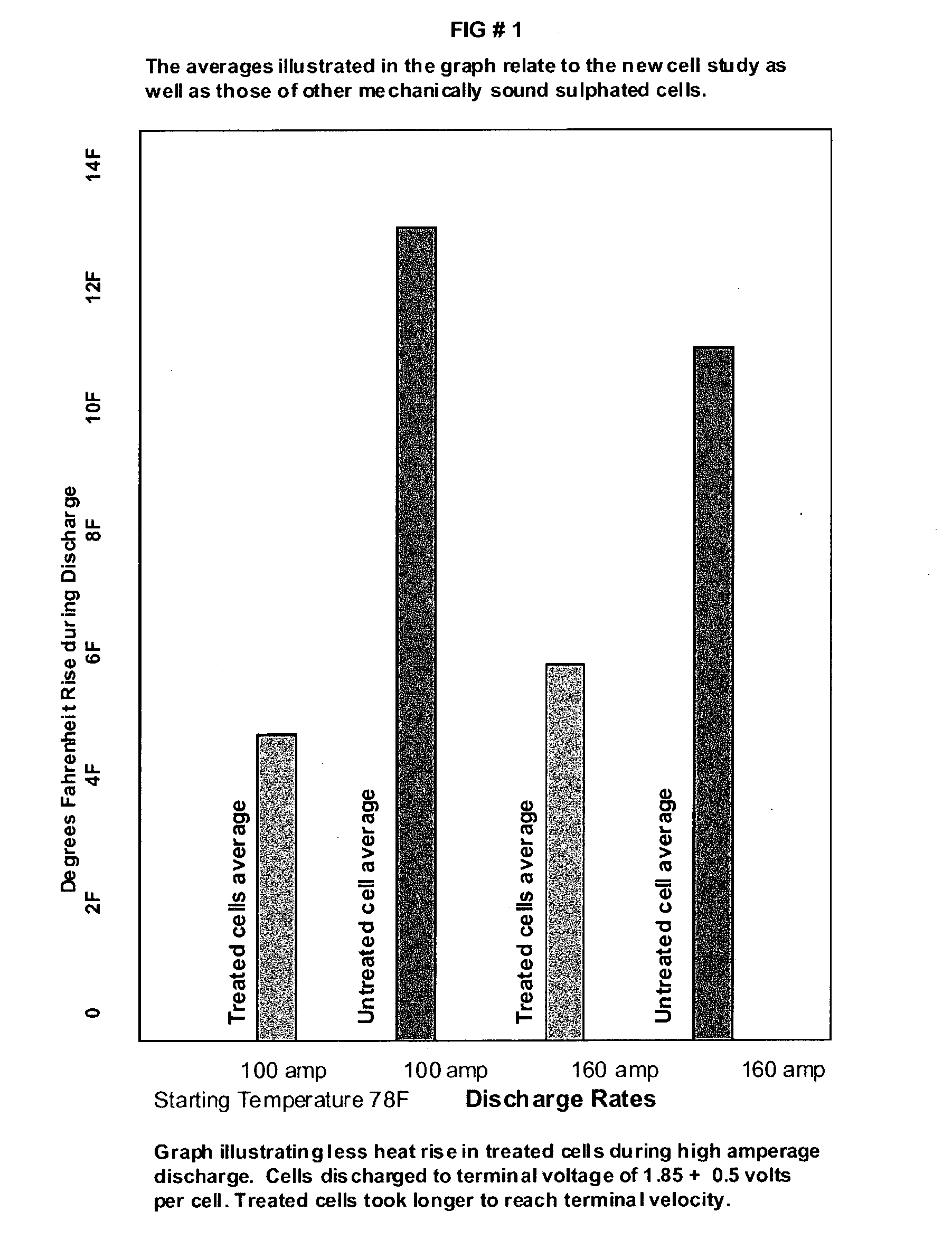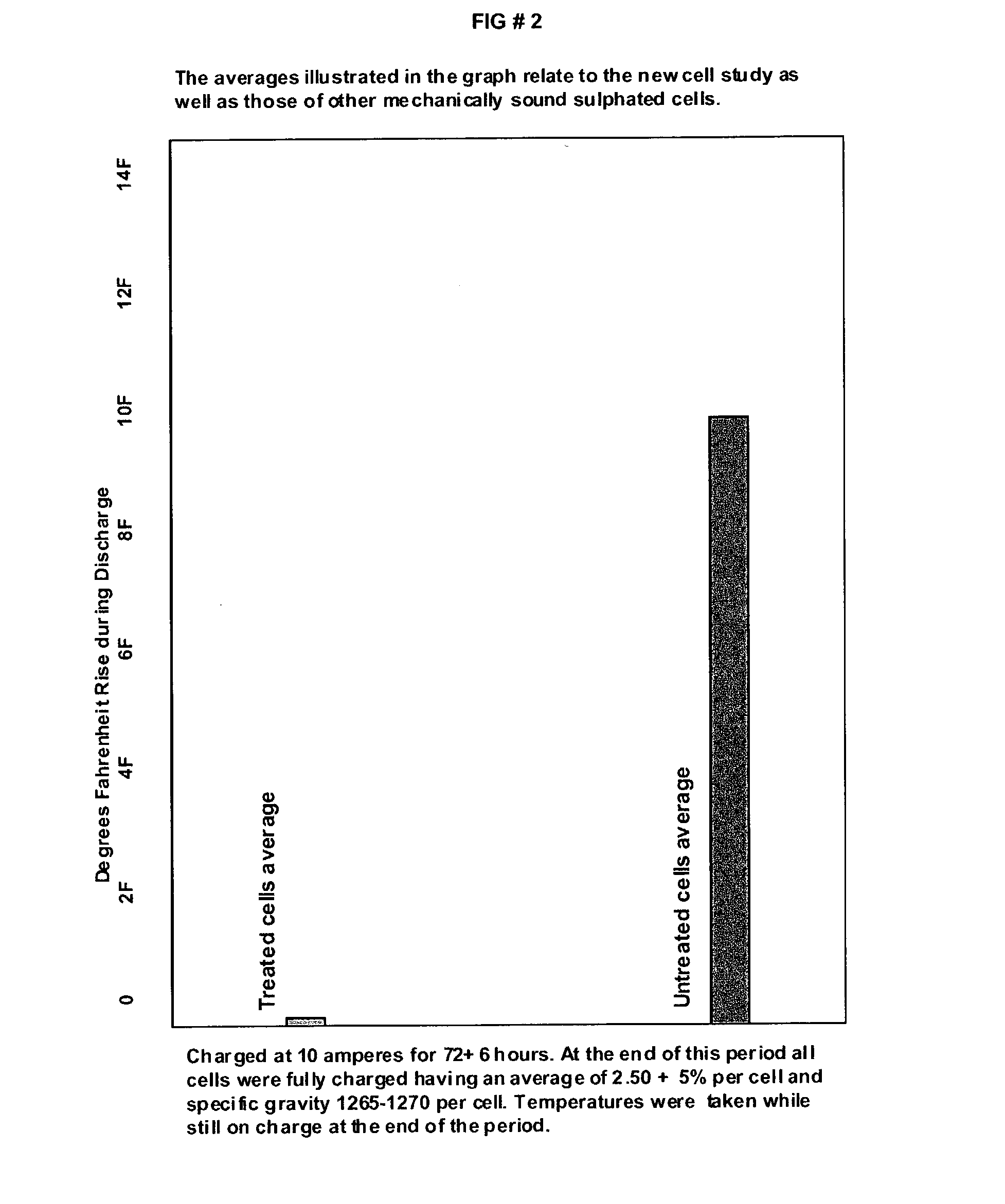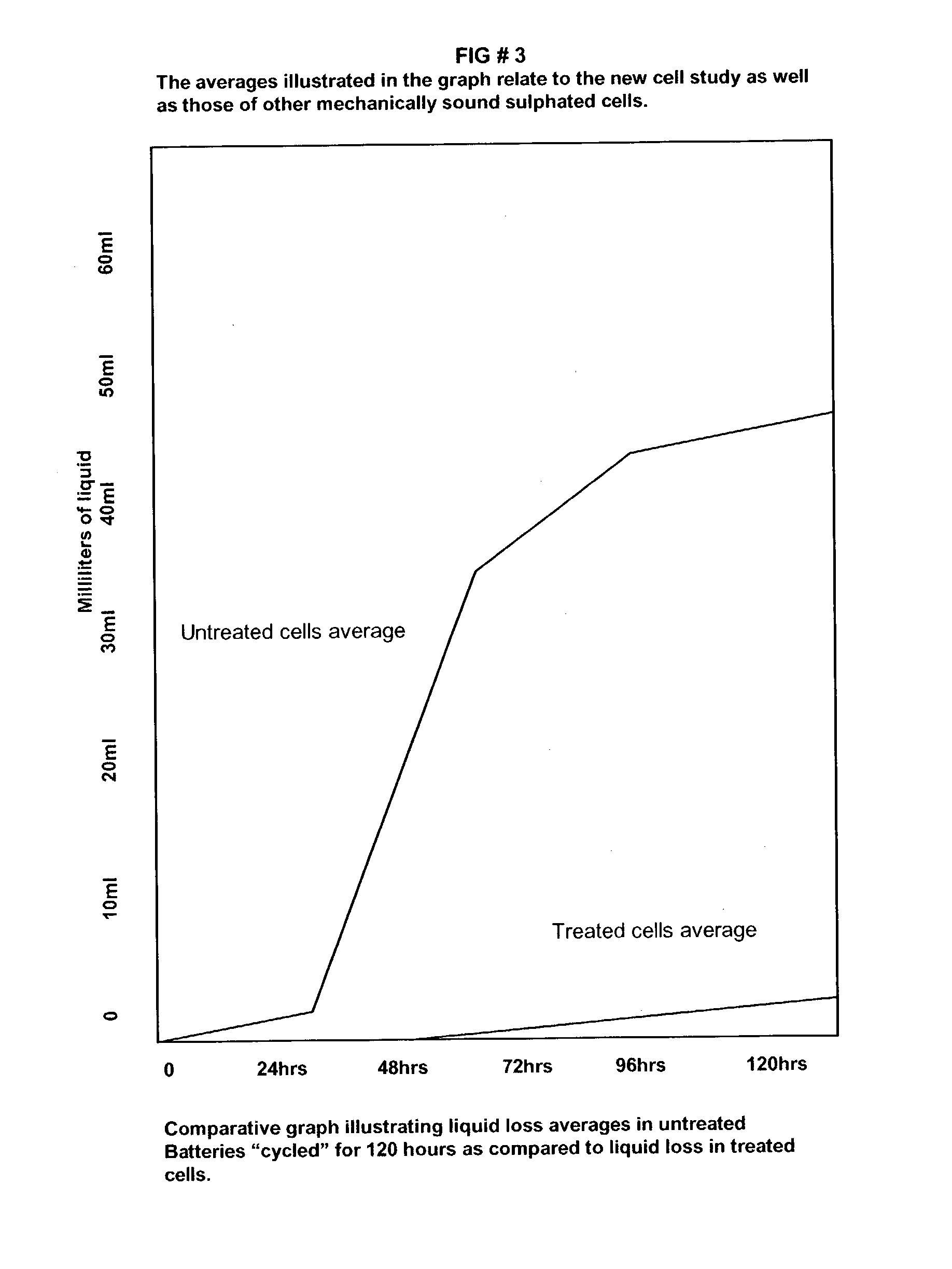Battery life extender additives
a battery life extension and additive technology, applied in the field of battery life extension additives, can solve the problems of battery failure irremediably, take a relatively long time,
- Summary
- Abstract
- Description
- Claims
- Application Information
AI Technical Summary
Benefits of technology
Problems solved by technology
Method used
Image
Examples
Embodiment Construction
[0078] The description of the present invention derives from observations on experimental work conducted with starting batteries of the same size and brand: Voltage 12V, Cells 6, 200 amps, electrolyte specific gravity 1.270 @ 72.degree. F. Those batteries were tested every 2 days, 1 day testing and 1 day to let them cool down. They were applied a charge of 10 Amps during 6 hours and then a draw of 10 amps discharge during 6 hours. The number of cycles applied was 270.
[0079] GROUP I--50 Identical New Flooded Lead-acid Batteries activated the same day the experimental work started.
[0080] Group I-A--10 were used as reference
[0081] Group I-B--40 were used as follows:
[0082] Group I-B with formula A
[0083] 10 were treated once with the solution comprising of 0.5% to 5% in weight of Sodium Hydroxide to the remaining balance of de-ionized water referred as formula A
[0084] Group II-B with formula B
[0085] 10 were treated once with the solution comprising of 0.5% to 5% in weight of Sodium Tetra...
PUM
| Property | Measurement | Unit |
|---|---|---|
| specific gravity | aaaaa | aaaaa |
| specific gravity | aaaaa | aaaaa |
| voltage | aaaaa | aaaaa |
Abstract
Description
Claims
Application Information
 Login to View More
Login to View More - R&D
- Intellectual Property
- Life Sciences
- Materials
- Tech Scout
- Unparalleled Data Quality
- Higher Quality Content
- 60% Fewer Hallucinations
Browse by: Latest US Patents, China's latest patents, Technical Efficacy Thesaurus, Application Domain, Technology Topic, Popular Technical Reports.
© 2025 PatSnap. All rights reserved.Legal|Privacy policy|Modern Slavery Act Transparency Statement|Sitemap|About US| Contact US: help@patsnap.com



